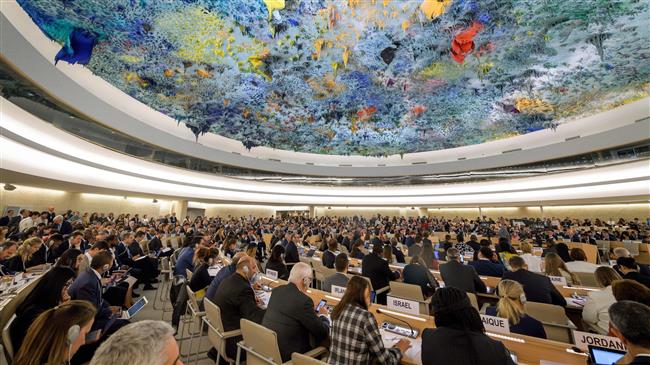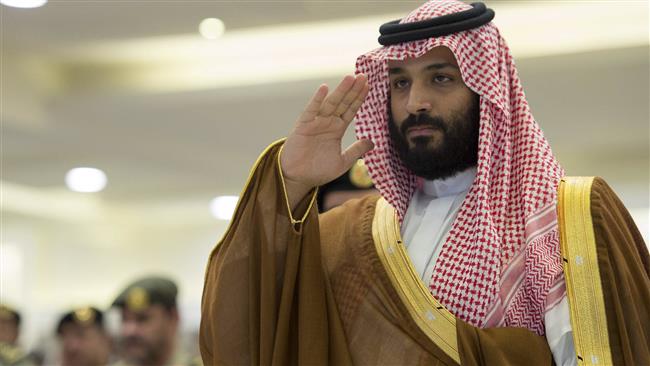EU countries, including UK, Germany, ‘deeply concerned’ about Saudi rights record
More than two dozen European Union countries have expressed grave concern about the human rights situation in Saudi Arabia, the second such assertion over a span of six months.
Fifteen EU members, including Britain and Germany, criticized the kingdom in a joint statement on Monday for torture, unlawful detentions and unfair trials of critics, including women activists and journalists.
The statement, read out at the UN Human Rights Council in Geneva, acknowledged Saudi reforms, including the announcement last month that restrictions on the rights of women to travel would be lifted, but said deep concerns still remained.
"However, we remain deeply concerned at the human rights situation in Saudi Arabia. Civil society actors in Saudi Arabia still face persecution and intimidation," Australia's ambassador Sally Mansfield said, reading out the statement.
"We are concerned at reports of torture, arbitrary detention, enforced disappearances, unfair trials and harassment of individuals engaged in promoting and defending human rights, their families and colleagues," she said.
The EU members also called on Saudi authorities to establish the truth about the brutal murder of dissident journalist Jamal Khashoggi at the kingdom’s diplomatic mission in Istanbul last October and ensure that the perpetrators of the heinous act would be held to account.
US intelligence agencies reportedly believe Saudi Crown Prince Mohammed bin Salman ordered the murder – an assertion that Saudi officials fiercely deny.
It was the second joint statement at the UN forum that censured the kingdom in six months, following the first rebuke of Riyadh at the forum in March.
Saudi Arabia has regularly dismissed allegations of unfair detention and torture of its detractors.
So far this year, the Saudi authorities have executed more than 130 people.
Saudi Arabia has controversially widened the scope of its so-called counter-terrorism law to include opposition to the kingdom’s policies at home and abroad and its treatment of the Shia population.
The kingdom, which is dominated by Wahhabism, an exceptionally intolerant ideology, is accused of exercising radically-discriminatory policies against its Shia minority.
In January 2016, Saudi authorities executed Shia cleric Sheikh Nimr Baqir al-Nimr, who was an outspoken critic of the Riyadh regime.
VIDEO | TELECOM 2024 brings together ICT firms in Iran
South Korea’s parliament impeaches acting President Han Duck-soo
Iran FM in China for 'more consultations' amid 'sensitive' circumstances
VIDEO | Israel, worried about ...
VIDEO | Press TV's news headlines
Settler fatally stabbed; five Israeli soldiers killed, injured in Jabalia
Rampant poverty in Israel and implications
UN chief: Israel strikes on Sana'a airport, power plants 'alarming'


















 This makes it easy to access the Press TV website
This makes it easy to access the Press TV website